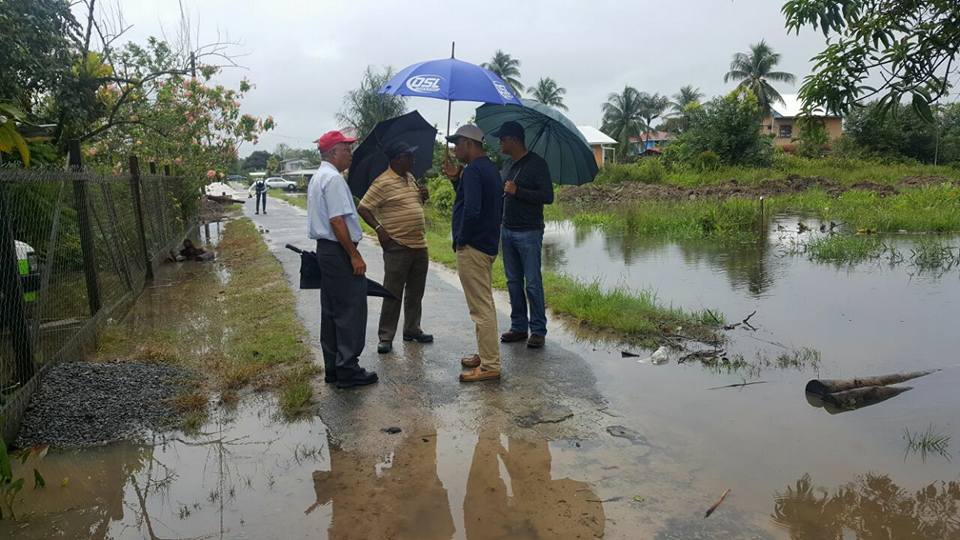Two hundred homes and farms are said to be affected by flooding in Canal No.1 on the West Bank of Demerara. This is according to the Department of Public Information which noted that personnel from the Civil Defence Commission (CDC), the National Drainage and Irrigation Authority and Regional officials visited the community on Thursday, December 28, 2017.
The DPI noted that CDC Acting Director General, Major Kester Craig is currently assessing the situation to see what assistance can be offered.
The CDC subsequently issued an advisory to citizens noting that there is a high risk of water accumulations and/or flooding in low-lying areas and those with poor drainage.

Below is a list of measures listed by the CDC:
– Elevate all items and appliances from the ground level to prevent damage, especially if flood waters usually enter your home or property.
– Place flood barriers such as sand bags around your home and/or businesses to prevent or minimise the amount of water entering your property.
– Avoid entering into flood waters as far as possible.
– If you must go into the water, use protective footwear such as long boots. Prepare a foot bath of ½ cup of bleach to 1 bucket of water and wash your feet before entering the house, then apply Vaseline or oil to your skin as it forms a barrier and provides some protection from the dirty water.
– Keep children out of water as they are at higher risk of contracting diseases.
– Use safe water for drinking, cooking, brushing your teeth, and for making ice and/or drinks. Safe water is water that has been boiled, treated with bleach (PUR, Chlorosol) or bottled water.
– Be prepared to evacuate to upper flats or to evacuate your homes altogether should you need to.
The public is also advised to remain alert and aware of the water levels and weather situation at all times.
Contact the Civil Defence Commission (CDC) for additional information or if you wish to report flooding in your community on: (592) 226-1114, 226-8815, 226-1027 or 225-5847, or contact our 24 Hours National Emergency Monitoring System (NEMS) on: (592) 623-1700 and 600-7500.







